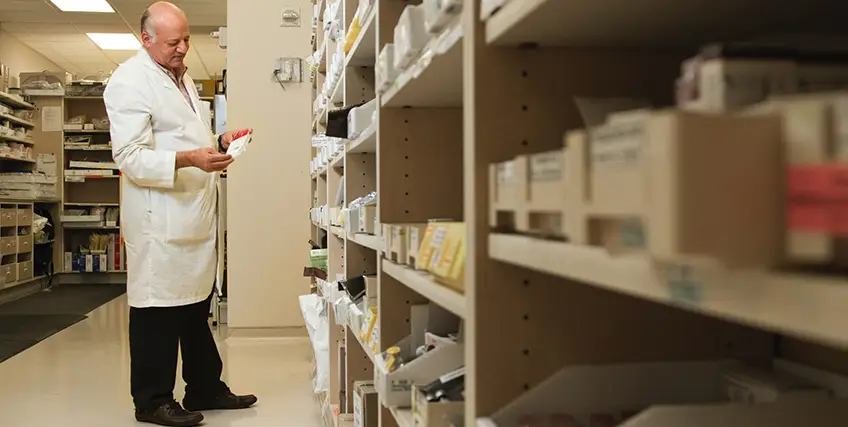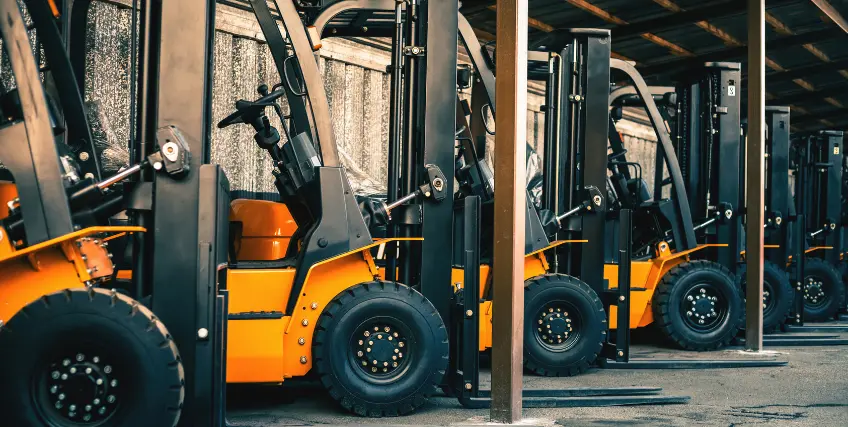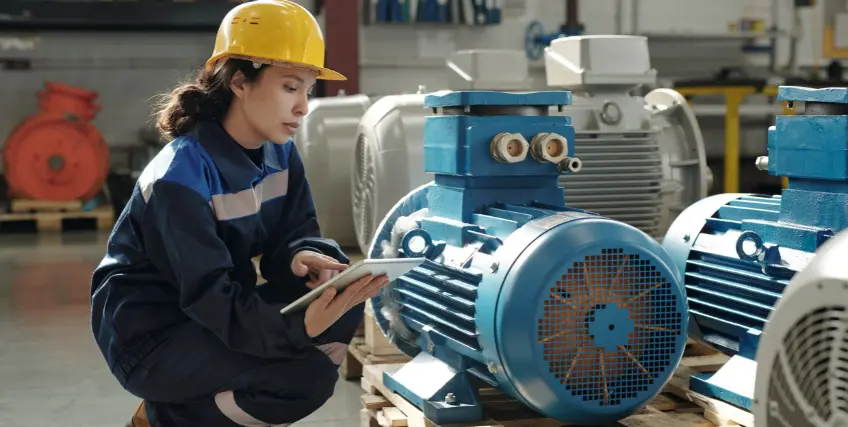Six Tips for Getting Your First Small Business Equipment Loan
December 23, 2024 | Last Updated on: December 23, 2024

Running a business often requires acquiring equipment that is too expensive to purchase outright with cash. For example, you may need to purchase costly tools like medical equipment, commercial vehicles, machinery, or even office furniture or computers.
Small business equipment loans are financial tools designed to help business owners solve this problem.
But if you’ve never used business financing before, navigating your equipment funding options can feel a little stressful. You have to make sure that the loan terms will allow you to maintain cash flow and sustain operations, while still qualifying for enough financing to purchase necessary equipment.
Thankfully, small business equipment loans are often easier to get than other types of business financing. That’s because with a small business equipment loan, the equipment serves as the collateral, so lenders aren’t as worried about losing their investment if the small business owner isn’t able to make their payments.
doesn’t mean that every applicant will qualify for a small business equipment loan, so here are some tips that can increase your chances of getting approved.
1. Review your qualifications for equipment funding
Here are three things lenders will consider when evaluating your eligibility for a small business equipment loan:
- Credit: A lender’s primary concern is whether your business will repay its debt. If you’re a new business or haven’t been in business very long, much of the lender’s decision depends on your personal financial history. The best-case scenario is you already have good personal credit. Ideally, you’ll have good business credit as well. If not, start improving your creditworthiness now.
If any of your accounts are in collection, pay them off. Do you carry a balance that is too high on your credit cards? It’s best to pay them down and pay your notes on time. There are ways to improve your credit score, and doing so can help you get approved for a loan with a lower interest rate.
- Time in business: In addition to your creditworthiness, lenders will also look at how long you’ve been in business. Lenders typically want a minimum of 18 months to two years in business before they’re willing to offer financing. But since an equipment loan has the collateral built in, you may be able to get a small business equipment loan even if you’re a startup.
- Annual revenue: Most lenders have a minimum annual revenue amount that they look for in the businesses they finance, but the amount will vary depending on the lender and the type of financing you seek.
2. Determine how much equipment financing you need
When borrowing money through an equipment loan, you want to ensure you get enough to cover all the equipment your business needs. If you apply for too little, you may not be able to purchase the equipment. But if you apply for too much, you may not be approved, or you’ll be paying interest for a loan you didn’t need.
Start by pricing out all of the equipment you need, and be sure to keep track of all of the details. You’ll want to be able to show your lender exactly how the money will be used. This is also a good time to consider how much of a down payment you can make for the equipment purchase. Some lenders may not require a down payment but many will. Even if one isn’t required, a downpayment can help you get lower interest rates on your loan.
3. Create a business plan
Your small business equipment loan application should make it evident that you have a clear use in mind for the financing. Writing a business plan can help you organize your thoughts, goals, and plans. It will also provide answers to many important questions that come with borrowing money. And many lenders require a business plan as part of the loan application process. This is especially true if you are applying for an SBA loan or a term loan.
Your business plan communicates to lenders the purpose of your business. It conveys what you do, and why you do it. It illustrates how the financing you are applying for will help you grow your business. A business plan also identifies what you need to reach your goals. A lender who sees your passion, purpose, and plan for making it all come together will be more willing to lend you the cash you need.
Here are some of the specific details to include in your business plan:
- Financial disclosures including cash flow statements, balance sheets, and profit and loss statements
- Tax returns
- A list of the equipment you want to buy for your business, along with price estimates
- Your forecasts for future revenue
4. Choose which type of equipment loan makes sense for your business
There are many different types of business loan options available from business lenders. Here are a few of the more mainstream types of financing options along with their biggest benefits and drawbacks.
- Small Business Administration (SBA) loans: SBA loans typically offer more competitive rates and repayment terms than traditional bank loans. That’s because the SBA backs most of the loan, leading to lower risk for the lender in case of default. However, the requirements for an SBA loan can be stringent. The application process is also very time-consuming and can take months, but the favorable terms may make it worthwhile.
- Term loans: You can get a term loan through a credit union or bank, the SBA, or an alternative lender online. Generally speaking, it’s harder to qualify for both an SBA or bank loan than it is for an alternative loan with an online lender. An online lender can also expedite the process and have loan funds to you in a week or less. Traditional lenders and the SBA take much longer. With term loans, you receive your entire loan funds upfront and can use the money however you need, whether for working capital, business expansion opportunities, equipment, and more. Repayment is made in equal monthly payments until the term loan is paid off.
- Equipment financing: Business equipment financing is for the express purpose of purchasing or upgrading physical equipment. Equipment can span the range of landscaping or construction equipment, computers, hotel furnishings, restaurant equipment, and more. They’re a safe investment for lenders because they hold the new equipment as collateral. If a borrower fails to repay the loan, they can repossess the equipment to help cover their losses.
- Business Line of Credit: Lines of credit are not actually loans, in fact they operate more like a business credit card: You receive a credit limit and must repay whatever is spent up to that limit, plus interest. Many business owners hold an open line of credit in case of emergency or use it for working capital.
- Revenue-based financing: Also not a loan, this type of equipment financing is common among online lenders. With revenue-based financing, there is no fixed term or interest rate. Rather, repayment is based on how much revenue your business brings in.
5. Apply for your equipment loan
Before applying, it’s wise to outline a pre-application checklist to make sure the loan process goes smoothly. Itemizing your loan tasks allows you to focus on each individually. Your checklist should include things like:
- You’ve written a clear business plan
- You’ve checked your business credit and taken any necessary steps to improve it.
- Your financial records are complete and accurate
With an organized list, you’ll be prepared when you apply for the loan and meet with your lender’s account manager. As for the application process, it’s essential to fill in all parts of the application and provide all requested documentation so it doesn’t delay your loan.
6. Repay your loan on time
It’s essential that you make your small business equipment loan payments on time. Missing payments will reflect poorly on your business credit score, and can result in the loss of your equipment, since it is guaranteeing your loan. There’s also the future to think about: If you default on an equipment loan (or any type of financing), you’ll be less likely to receive funding in the future.
FAQs about small business equipment loans
Is it hard to get an equipment loan?
An equipment loan is usually easier to get than other types of small business loans. Many lenders view an equipment loan as lower risk due to the equipment serving as collateral.
What is the minimum credit score requirement for an equipment loan?
Many lenders lower the credit score threshold for equipment loans. Some lenders will approve equipment loans with credit scores as low as the high 500s.
What is the average interest rate on equipment funding?
The average interest rate for equipment financing will vary depending on the lender and the larger economic environment. Business owners with bad credit or who haven’t been in business for long may pay more interest, while those with established businesses and good credit will typically get more favorable terms.
Is it possible to get a small business equipment loan with bad credit?
Yes, it is. Since the equipment serves as collateral for the loan, lenders are more willing to offer financing for equipment loans than they would be for other types of loans. This is also why it’s possible to get an equipment loan for startup businesses.
How much repayment time is allowed on equipment loans?
This hinges in large part on the useful life of the equipment the loan funds are used for. For example, if you borrow money for equipment that will be obsolete in three years, a lender will not allow longer than that for you to repay the loan.
Frequent searches leading to this page
equipment loan rates, equipment loans for new business, equipment loan rates today, best equipment loans




